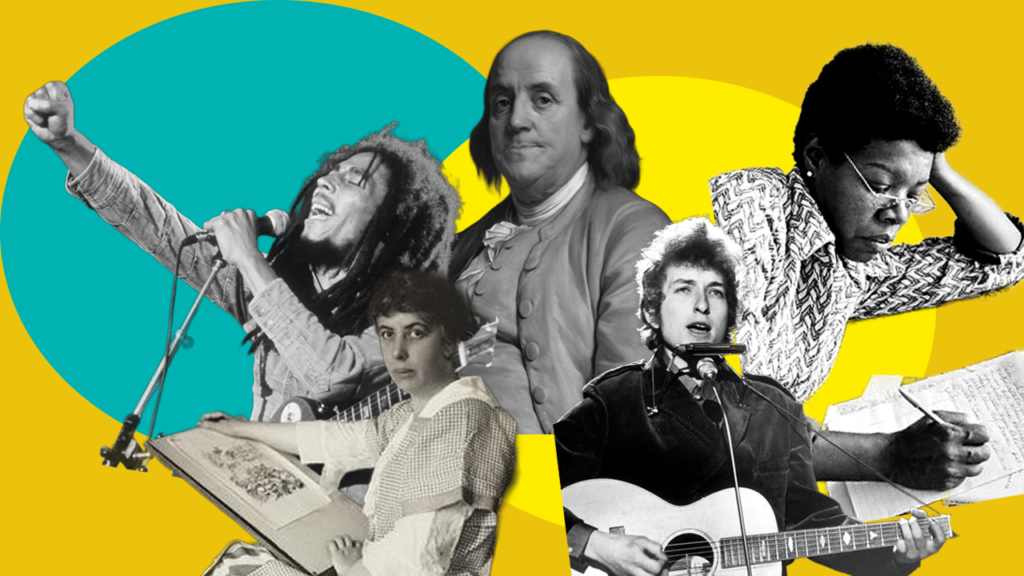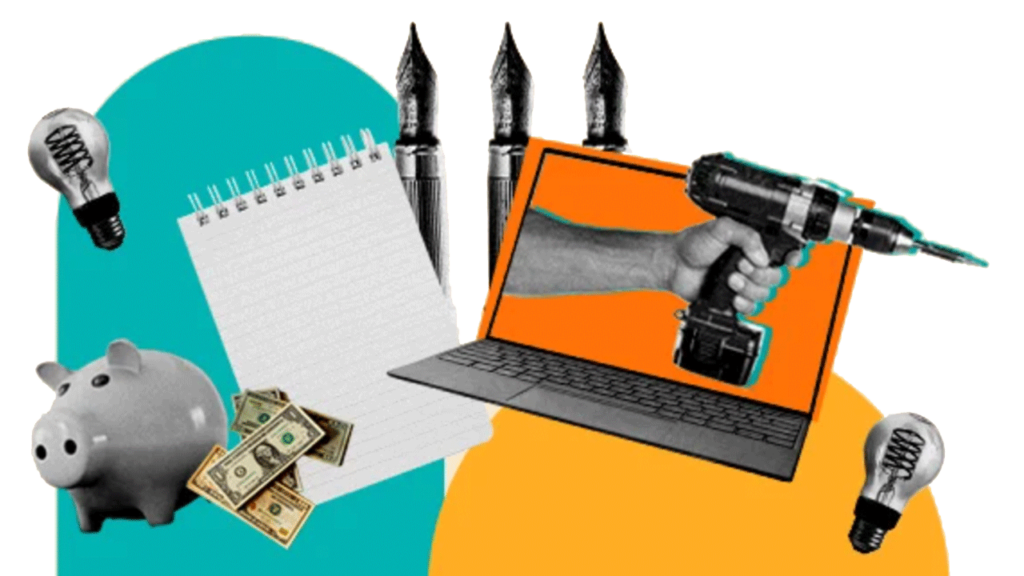Throughout history, creativity has been a powerful driver of systemic change. Art, music, writing, and design don’t just reflect the world—they help reshape it. Whether through protest songs, political cartoons, public speeches, or poetic resistance, creative expression invites us to imagine something different—and then pushes us to build it.e law—regardless of wealth, background, or status. It’s a declaration that your voice matters. While national elections often take the spotlight, it’s local elections—where you have the most voice. These are the votes that decide how your community is policed, how schools are funded, and whether essential services are protected or privatized. Participating in these elections is not only meaningful—it’s one of the most immediate ways to influence the kind of society we live in.

Bob Dylan used folk music to question authority and speak to the soul of a generation. His lyrics became anthems of the civil rights and anti-war movements, proving that music could move both hearts and policy.
Maya Angelou turned lived experience into literature that challenged racism, misogyny, and silence. Her poems and autobiographical works gave voice to those too often overlooked and made personal storytelling a form of activism.
Sylvia Pankhurst, an artist and suffragette, fused creativity with direct action. She used design, illustration, and printmaking to spread the message of women’s suffrage across England, creating some of the first feminist visual campaigns.
Bob Marley didn’t just make music—he built a movement. Through rhythm and rebellion, his songs became tools for anti-colonial struggle and messages of peace, unity, and political awakening across the globe.
Benjamin Franklin, one of America’s founding thinkers, was also a publisher, satirist, and designer of symbols like the “Join, or Die” cartoon. He understood that wit, symbolism, and clear communication were essential to building a democratic movement.
In an era of complex challenges—from voter suppression to climate injustice—creativity still gives people power. It helps us see systems more clearly and imagine new ones more boldly. Through posters, poetry, podcasts, memes, murals, or code, anyone can contribute to shifting the culture—and that’s where real change begins.
Systemic change doesn’t always start in a courtroom or a legislature. It often starts with a song, a story, or a spark of imagination. When we create, we communicate values, share vision, and invite others to take part. That’s why creativity isn’t just decoration—it’s a foundation for democracy. Check out the work of some inspirational people innovating for democracy!
We’ve inherited a world shaped by complex, imperfect systems—from global supply chains to entrenched policies. Ethical choices are important, and awareness is the first step. Still, no one creates in a vacuum of perfection. What matters is showing up—sharing, expressing, participating. That’s how we shape better policies, deepen understanding, and affirm our shared humanity.
We urge you to get involved somehow in whatever little way is possible for you! Use what you have. Speak your truth. Create boldly.
